“My lifestyle was such in [the 1940s] that I ended up being taken as an easy lay. Amongst my entourage I was the good time had by all. Men treated me like some territory which had to be conquered, even though deep inside I still felt pure and desperate.”
The s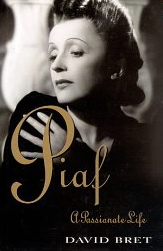 ubtitle, “A Passionate Life,” epitomizes everything Edith Piaf believed in and stood for. Perhaps because of her impoverished childhood, in which even a small kindness meant everything, Piaf grew up craving attention and love. Abandoned by her mother, she grew up in Pigalle, doing whatever she could to stay alive and find happiness, however fleeting. If that meant doing a quick trick to get enough money to eat, she did that. If she could get enough money singing on a corner, she did that instead. Uneducated and unloved, she developed few, if any, inner resources, intellectually or emotionally, to deal with the fame that was to become her fate, and with her need for love, she was fair game for every manipulator, sleazy operator, and parasite who came her way. “What is so utterly remarkable,” Bret notes, “is that she hardly ever seemed to mind, so long as she was getting something in return.”
ubtitle, “A Passionate Life,” epitomizes everything Edith Piaf believed in and stood for. Perhaps because of her impoverished childhood, in which even a small kindness meant everything, Piaf grew up craving attention and love. Abandoned by her mother, she grew up in Pigalle, doing whatever she could to stay alive and find happiness, however fleeting. If that meant doing a quick trick to get enough money to eat, she did that. If she could get enough money singing on a corner, she did that instead. Uneducated and unloved, she developed few, if any, inner resources, intellectually or emotionally, to deal with the fame that was to become her fate, and with her need for love, she was fair game for every manipulator, sleazy operator, and parasite who came her way. “What is so utterly remarkable,” Bret notes, “is that she hardly ever seemed to mind, so long as she was getting something in return.”
Author David Bret spends little time on Piaf’s childhood, concentrating instead on her career from its beginning in the 1930s until her death on Oct. 10, 1963. When she was still a teenager, Louis LePlee, a sixty-year-old gangster and pervert who peddled drugs and flesh, invited her to try out at his nightclub and he quickly signed her to her first real job. When he was shot dead not long afterward, however, Piaf herself became a suspect and was interviewed at length by the police. It was not until the public intervention by a friendly journalist, who wrote an article attacking the scandal-mongers, that she was able to escape from the publicity,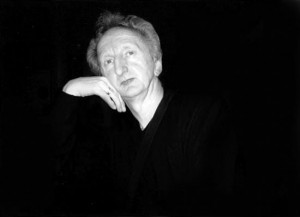 with her reputation, such as it was, in tatters. She was then mentored by Raymond Asso, whom she ordered to leave his common-law wife–or else. Their affair was, not surprisingly, a wild one. “She was short-tempered, vulgar, loudmouthed, but above all, exceptionally gifted…He was impatient, sometimes violent, and stubborn.” When this affair, like her many subsequent affairs, broke off, she immediately found a replacement, always with someone who could advance her career, either as a songwriter or as a promoter. It was love at first sight (again) when she met Paul Meurisse, though their physical altercations (“Edith never had any respect for a man until he slapped her.”) were legendary. Eventually, Edith became part of the theatre crowd which included Jean Cocteau, who adored her, and she acted in several plays and films.
with her reputation, such as it was, in tatters. She was then mentored by Raymond Asso, whom she ordered to leave his common-law wife–or else. Their affair was, not surprisingly, a wild one. “She was short-tempered, vulgar, loudmouthed, but above all, exceptionally gifted…He was impatient, sometimes violent, and stubborn.” When this affair, like her many subsequent affairs, broke off, she immediately found a replacement, always with someone who could advance her career, either as a songwriter or as a promoter. It was love at first sight (again) when she met Paul Meurisse, though their physical altercations (“Edith never had any respect for a man until he slapped her.”) were legendary. Eventually, Edith became part of the theatre crowd which included Jean Cocteau, who adored her, and she acted in several plays and films.
During Wo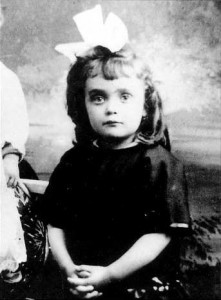 rld War II, she miraculously managed to stay on the good side of the Germans, visiting internment camps to sing for the imprisoned French soldiers. Because the guards knew little or no French and knew of her talent, she was regularly allowed to sing her own lyrics to a Hitlerian anthem, the translation of which reads, “Up your arse! Up your arse!/ We shall have victory!/ They’ve lost all hope of glory!/ They’re f*cked!/ And the world rejoices.” During her many visits, she was allowed to have her photo taken with prisoners and guards, and she used those photos of prisoners to have phony identification cards made. Each time she left the camps, she left with a larger entourage than she had arrived with, regularly taking six or seven men out with her. Ultimately, through the visits and the new identity cards, she helped three hundred prisoners out of the stalags, out of France, and to the Unoccupied Zone.
rld War II, she miraculously managed to stay on the good side of the Germans, visiting internment camps to sing for the imprisoned French soldiers. Because the guards knew little or no French and knew of her talent, she was regularly allowed to sing her own lyrics to a Hitlerian anthem, the translation of which reads, “Up your arse! Up your arse!/ We shall have victory!/ They’ve lost all hope of glory!/ They’re f*cked!/ And the world rejoices.” During her many visits, she was allowed to have her photo taken with prisoners and guards, and she used those photos of prisoners to have phony identification cards made. Each time she left the camps, she left with a larger entourage than she had arrived with, regularly taking six or seven men out with her. Ultimately, through the visits and the new identity cards, she helped three hundred prisoners out of the stalags, out of France, and to the Unoccupied Zone.
Marcel Cerdan, “the love of Piaf’s life,” is just a small part of the story here. Following his death, which, for a time, was devastating to her, she took on about a dozen new lovers, eventually marrying twice. Sh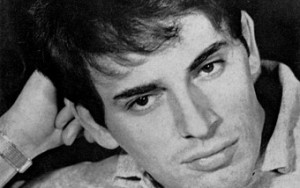 e survived car crashes, a host of medical problems–rheumatism, acute agoraphobia, intestinal adhesions, pneumonia–overdoses of prescription drugs and serious addiction to alcohol and drugs. At the end of her life, at 47, she married a man in his twenties, whom she mentored as a singer, though he was wildly unpopular and believed to be taking advantage of her. Those who saw them together, however, could see the genuine love between them, and he seems to have made her happy as the end drew near.
e survived car crashes, a host of medical problems–rheumatism, acute agoraphobia, intestinal adhesions, pneumonia–overdoses of prescription drugs and serious addiction to alcohol and drugs. At the end of her life, at 47, she married a man in his twenties, whom she mentored as a singer, though he was wildly unpopular and believed to be taking advantage of her. Those who saw them together, however, could see the genuine love between them, and he seems to have made her happy as the end drew near.
Those who have loved the incredibly emotional film of LA VIE EN ROSE (reviewed on this site) with Marion Cotillard, may be disappointed by the fact that much of this book is a discography, explaining how and when her famous recordings and films were made and who wrote them. Bret seems to have attempted to record every possible piece of information about her professional life, and he has done this effectively. Piaf’s friendship with Yves Montand, whom she 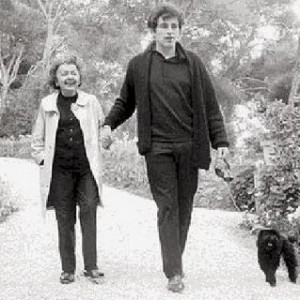 mentored, and with the great Marlene Dietrich stand out as human moments in this otherwise straightforward presentation about this unforgettable star and her legacy. She sang until near the very end of her life. On September 20, 1963, less than three weeks before she died, she gave an interview to France-Soir and allowed herself to be photographed walking outside with Theo and their black poodle. According to Bret, Edith had penned a loving message for Theo for their first anniversary, Oct. 9, and it was while he was reading this that she lapsed into the coma that would take her life the next day. She devoted her life to passion, always at the expense of reason, but she lived her life her way, and as she sings so famously, “Je ne regrette rien.”
mentored, and with the great Marlene Dietrich stand out as human moments in this otherwise straightforward presentation about this unforgettable star and her legacy. She sang until near the very end of her life. On September 20, 1963, less than three weeks before she died, she gave an interview to France-Soir and allowed herself to be photographed walking outside with Theo and their black poodle. According to Bret, Edith had penned a loving message for Theo for their first anniversary, Oct. 9, and it was while he was reading this that she lapsed into the coma that would take her life the next day. She devoted her life to passion, always at the expense of reason, but she lived her life her way, and as she sings so famously, “Je ne regrette rien.”
Notes: Another biography of Piaf by Monique Lange may be found here: http://marywhipplereviews.com
The author’s photo is from http://upload.wikimedia.org
The photo of Piaf as a child, ca. 1918, is posted on this site: http://pinterest.com
Theo Sarapo, Piaf’s last husband, twenty years younger, died seven years after her death at the age of thirty-three. http://www.christielaume.com
The photo of Piaf and Theo Sarapo, and their poodle, taken shortly before Piaf’s death is from http://4.bp.blogspot.com
A video of “Non, je ne regrette rien,” one of Piaf’s most famous songs, may be found, recorded live, on YouTube:
